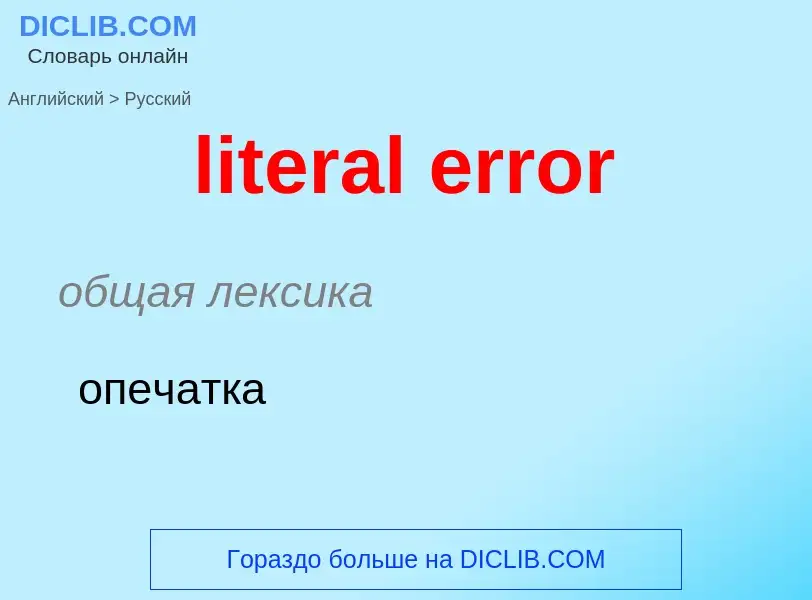Traducción y análisis de palabras por inteligencia artificial ChatGPT
En esta página puede obtener un análisis detallado de una palabra o frase, producido utilizando la mejor tecnología de inteligencia artificial hasta la fecha:
- cómo se usa la palabra
- frecuencia de uso
- se utiliza con más frecuencia en el habla oral o escrita
- opciones de traducción
- ejemplos de uso (varias frases con traducción)
- etimología
literal error - traducción al ruso
общая лексика
опечатка
Definición
Ошибка, оговорка, досадный промах (обычно в устной речи и на письме).
Wikipedia
In mathematical logic, a literal is an atomic formula (also known as an atom or prime formula) or its negation. The definition mostly appears in proof theory (of classical logic), e.g. in conjunctive normal form and the method of resolution.
Literals can be divided into two types:
- A positive literal is just an atom (e.g., ).
- A negative literal is the negation of an atom (e.g., ).
The polarity of a literal is positive or negative depending on whether it is a positive or negative literal.
In logics with double negation elimination (where ) the complementary literal or complement of a literal can be defined as the literal corresponding to the negation of . We can write to denote the complementary literal of . More precisely, if then is and if then is . Double negation elimination occurs in classical logics but not in intuitionistic logic.
In the context of a formula in the conjunctive normal form, a literal is pure if the literal's complement does not appear in the formula.
In Boolean functions, each separate occurrence of a variable, either in inverse or uncomplemented form, is a literal. For example, if , and are variables then the expression contains three literals and the expression contains four literals. However, the expression would also be said to contain four literals, because although two of the literals are identical ( appears twice) these qualify as two separate occurrences.

